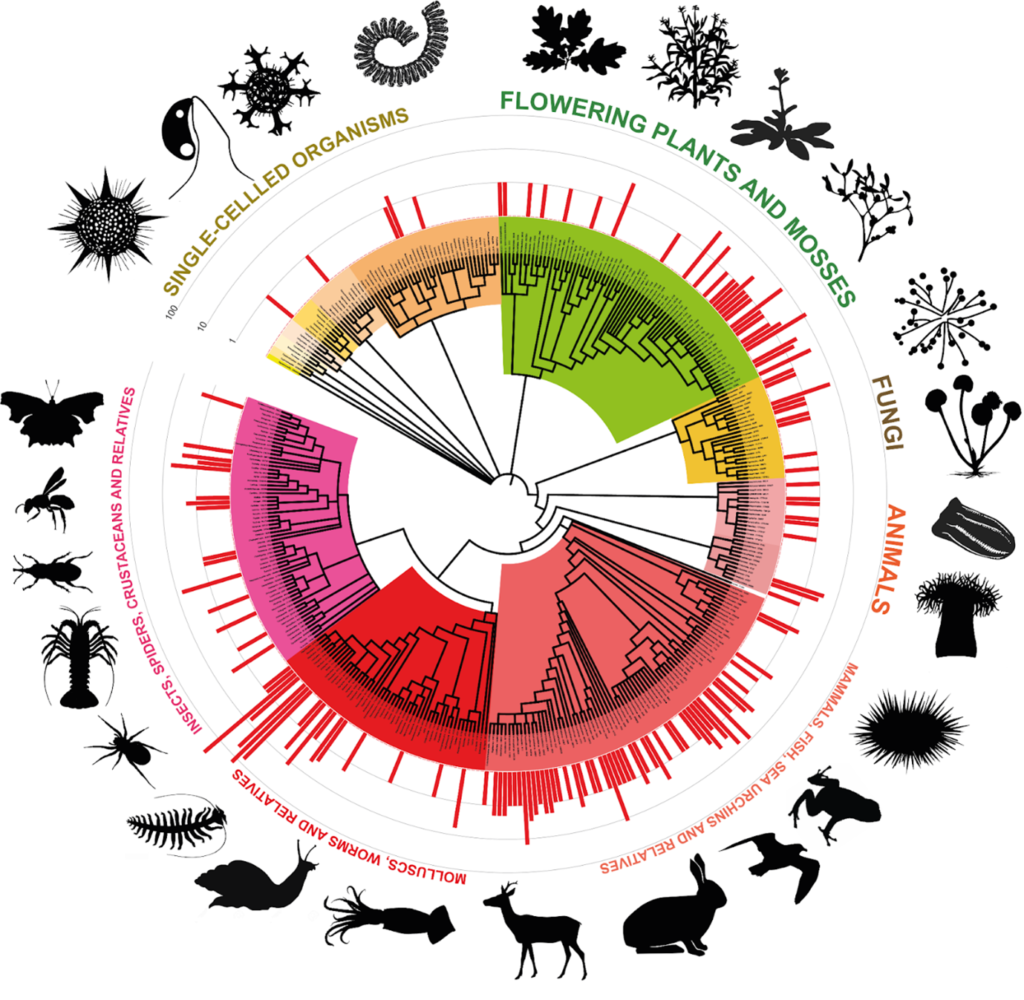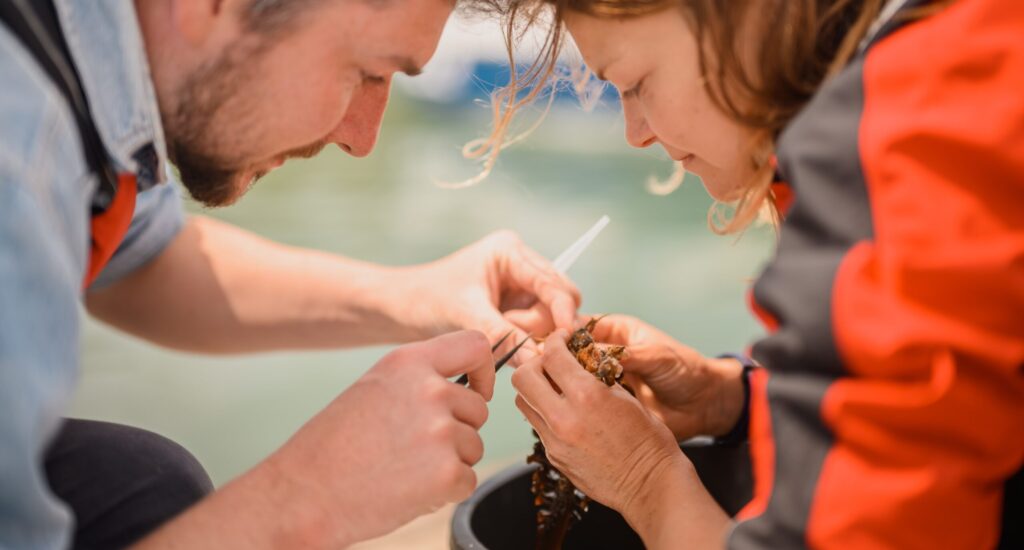An ambitious project to sequence the genomes of all eukaryotic species found in Britain and Ireland has passed a major milestone.

Over 1,000 genomes have now been produced as part of the Darwin Tree of Life project – a collaboration between ten leading research organisations and funded by Wellcome.
The Darwin Tree of Life project aims to use DNA data to understand how the diversity of life on Earth evolved, explore the biology of organisms and ecosystems, aid conservation efforts, and provide new tools for medicine and biotechnology.
It is one of several initiatives across the globe working towards the ultimate goal of sequencing all complex life on Earth, in a venture known as the Earth BioGenome Project.
Professor Mark Blaxter, Head of the Tree of Life programme at the Wellcome Sanger Institute, said: “It’s a huge achievement to pass this milestone – and it has only been possible through the remarkable collaboration, hard work, and innovation of people from all of the project partners over the first four years of our groundbreaking project.
There are estimated to be about 70,000 eukaryotic species – organisms whose cells have a nucleus – in Britain and Ireland.
While today’s milestone represents only a fraction of the total, much of the work of the past 4 years has involved the development of protocols and pipelines required to generate reference quality genomes from never-before-sequenced species.
Species analysed by the Darwin Tree of Life project so far have come from across the many branches of the tree of life, from single celled organisms (also known as protists) to the more familiar plants, fungi, and animals.

The Marine Biological Association (MBA) is one of the partners of the Darwin Tree of Life project and plays a major role in the sampling and provision of marine species.
The MBA project team have visited over 40 locations across the UK to find as many marine species . leaving no rock unturned on their mission. Once the samples are collected and processed in the laboratory, they are sent to the Wellcome Sanger Institute and the Natural History Museum for genome sequencing.
Other Darwin Tree of Life partners include the Earlham Institute, EMBL-EBI, History Museum, Royal Botanic Garden Edinburgh, Royal Botanic Garden Kew, and the Wellcome Sanger Institute, along with teams at the Universities of Cambridge, Edinburgh and Oxford.